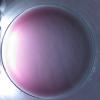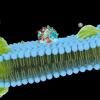This study suggests chitosan might indeed latch onto fats, oils, and lipids generally and inhibit digestion and cause it to be excreted:
http://www.ncbi.nlm....pubmed/22484940
[full text link]A significant negative correlation was observed between the fecal excretion rates of BPA and DEHP and apparent fat digestibility. Furthermore, the CHI group showed not only increased but also accelerated BPA excretion into the feces. In conclusion, we found that that chitosan intake significantly increased the fecal excretion of BPA, DEHP, and fat, suggesting that it might be useful for reducing adverse effects caused by lipophilic xenobiotics.
I take about 750 mg of chitosan twice daily with my astragalus/purslane stack. I'm thinking of either dropping it based on the above study or maybe moving it to different part of the day if the chitosan effect dissipates quickly enough. I've been doing that stack for a few years now but never dug into purslane very deeply until now. Here's a paper I just read on purslane that was kind of an eye opener for me:
Antioxidant effect of purslane and its mechanism of action
I take perslane for telomerase activation. I didn't even realize it was an antioxidant with SOD impact. Or that it was high in polyunsaturated fats including linolenic, linoleic, and omega-3 fatty acids. Suggesting it might bond well with C60 but get eliminated by chitosan. I'm thinking if I don't drop chitosan, maybe I should move the purslane from my astragalus stack to my resveratrol stack which I cycle weekly.
I was thinking of mixing purslane into the olive oil with C60 until I read this in an interesting paper on the Chemistry and Quality of Olive Oil:
Although linolenic acid is considered to be nutritionally beneficial, it is a polyunsaturated acid with three double bonds. As a result, it is particularly unstable and susceptible to oxidation (rancidity).
So I think it might be a better idea to keep my purslane out of the olive oil. What niner and maxwatt said...
Howard
Edited by hav, 24 May 2012 - 04:56 PM.
























































